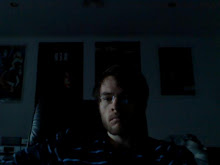Came upon this during Finals revision.
I distrust these ‘at once’ statements as much as any other sensible middle-class bloke. They are consistently an annoyance in Ricks. One room cannot be dark and light; a ball cannot be light and heavy; according to Ricks, though, hyphens in poems can at once pull to and push apart. Ricks is wrong—hyphens only link where a whitespace had divided. They mark juncture; the syntactic or whimsical roping-together of words unpartnered, rather like the ‘yoking’ Johnson perceives is characteristic of Metaphysical poetry. He can get away with it because most assertions about literature are insulated from any true procedure of proof. Sure, you can prove irrefutably facts about what happens in a text, like Nabokov in his Lectures (it’s arguable this is scholarship, not criticism), but in stating a more numinous view like ‘This hyphen at once attracts and repels’, all you can do is quote the hyphen and see if anyone believes you. Such quotation does not constitute ‘evidence’ any more than quoting the words ‘silken tent’ constitutes evidence for Paul Muldoon’s idea that ‘cunt’ has been hidden there by Frost. To my mind, the hyphens in ‘now-almost-meaningless despair’ (the last words of King Log’s wondrous ‘Arrurruz’ sequence) do nothing other than conflate those three words into a newly meaningful hybrid. (And is it beside the point that they improve the rhythm?) Omitting the hyphens would have put them apart. Simply because the effect works within the domain of literature, it cannot be said at once to have achieved contradictory aims. Maybe on second reading it seemed the hyphens were doing more than uniting. That’s fine, but it invalidates Ricks’ sly ‘at once’. If I were to push and pull a door at the same time, I would break the laws of physics, probably disappearing into a self-created black hole. Is literature so rarefied, so abstract and so closely involved with the intellect, that it need not obey these laws?



